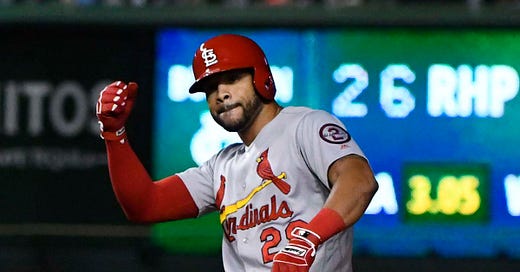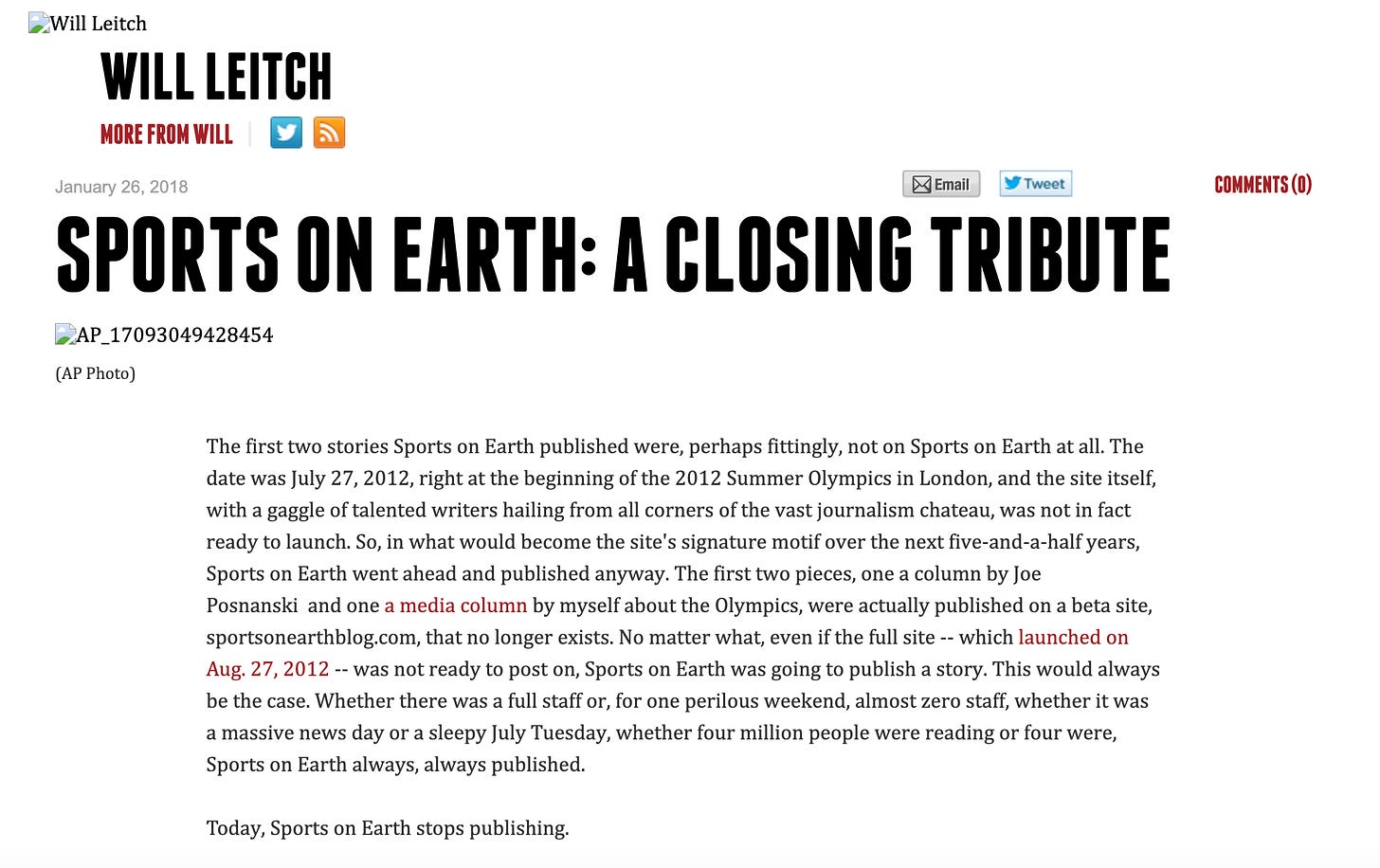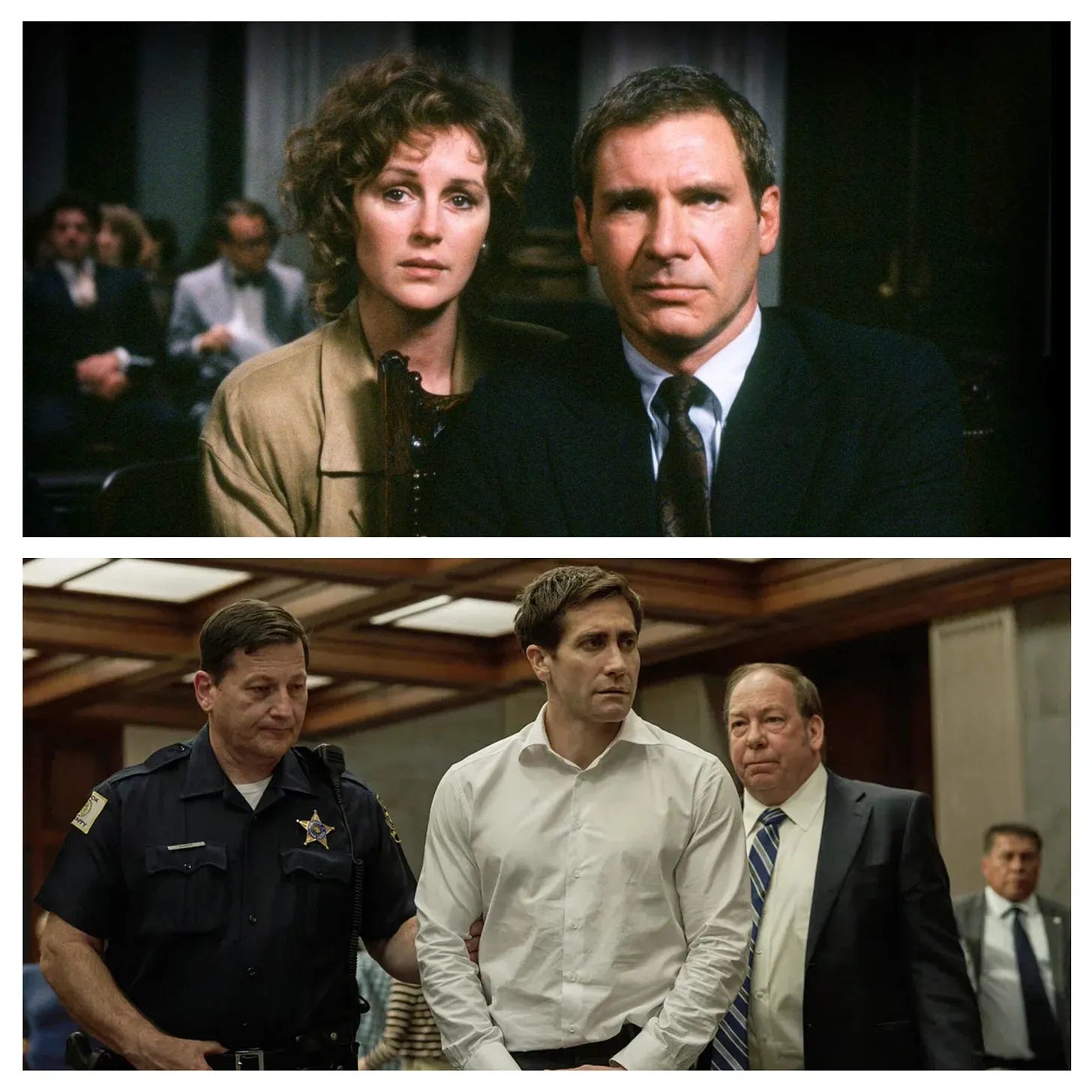Here is a button where you can subscribe to this newsletter now, if you have not previously done so. I do hope that you enjoy it.
The children here went back to school on Thursday, which might sound early to you if you hadn’t been in the house with them all day all summer. They spent a few weeks away at camp, and we took a few trips, but on the whole, they were here, and, because I’m the parent who works more out of home, so was I. My mom, before she went to nursing school when I was in junior high, was better about this than I am. This was, roughly, the summer schedule for my sister and me growing up:
Wake up, eat breakfast, brush your teeth, wave goodbye to your father.
Go Outside. Where you go and what you are doing is immaterial. You are simply to stay Outside—wherever “Outside” may take you.
Come inside for 15 minutes of lunch.
Return to Outside. Previous rules apply.
When father returns from work, wave hello, then return to Outside. When he whistles, come home, eat dinner, bathe, go to bed and fall asleep listening to the Cardinals game.
Repeat until school begins again.
I have been far less successful laying down such clear ground rules. They’re shoved out the door, but it never quite seems to stick; before I knew it, I’d head downstairs and they’d be back inside, roaming around, walking in circles, confused about what they were supposed to do. Inevitably they’d wear me down and turn on the television—which is why my son Wynn made it through the entire run of “Brooklyn 99” this summer—which just made me feel like an absentee parent in my own house. So my wife and I found ourselves scrambling to find them something to do. Which led to me giving Wynn, my 10-year-old, a job. It was a job I needed done.
One of the perils of being a writer online for so long is the fear that all the work you’ve been doing over the years will be lost. Publications will close. URLs will break. Websites will redesign. I have boxes of physical media clips—boxes taking up place in the basement, boxes I have been reliably informed will be thrown out for space within hours of my death—but archiving your online work gets a little more difficult every year. I’ve had friends who have lost decades of their material with a toggle of a tech bro’s switch. Fortunately, the treasure that is Archive.org exists, a site that has taken so many snapshots of so many websites over the decades that it has become the unofficial, and even somewhat accidental, protector of many creators’ work. It’s a place where even if the site you wrote for has died, you can still find your words, barely hanging on.
I am in the process of trying to save all these old words, while I can, so, rather than let Wynn stare at a television all summer, I gave him this job. One of the Websites I used to write for was the late Sports On Earth, the daily sports journalism site co-owned by USA Today and MLB Advanced Media that closed in January 2018. I also hosted a daily podcast there for several years; check out all the guests we had.
I wrote hundreds upon hundreds of pieces for that site, but because a tech person clicked the wrong button by accident a few years later, the archives evaporated. If you try to bring up a Sports On Earth story today, your browser will inform you that “your site cannot be reached.”
But if you put it into Archive.org, you are magically transported.
Thus, this was Wynn’s job: Go through the archives of this newsletter, the one you’re reading right now, which I have been writing since May 2016, when Wynn himself was still not yet two years old, and find all the links to Sports On Earth stories. Then plug them into Archive.org, save all the URLs in a Google Doc and send it to Dad. That’s it. Eventually I’ll have him go back even further into the SoE archive, and then have him dig into Deadspin’s archive (uh, when he’s older), and hopefully he’ll be able to get everything scraped. It’s a good job for a kid with some time on his hands when it’s 100 degrees outside. He’ll get 10 bucks an hour for his troubles, and I’ll get some peace and quiet to work. Win-win.
So Wynn got to scraping. He has been doing a good job. He found the piece I wrote the night after LeBron’s NBA Finals block, as well as my Muhammad Ali obituary, pieces that I’d completely forgotten about writing that I was pleased to discover still held up rather well. He has a long way to go, but he’s already more than earned his money. But the project has one small downside I’ve just discovered: He’s now reading newsletters his father wrote back when he was in diapers.
“You’re the Doodie-Doo,” he told his old brother this week, an oddly infantile expression, even for a 10-year-old. William had no idea what he was talking about, so Wynn explained.
“That’s the game you were playing when you cracked your head open,” he said. “When you were four years old, you and your friend were playing a game called ‘Who’s the Doodie-Doo,’ where you go up to someone, and when you say "You’re the Doodie-Doo” to them, you have to fall down. Your friend did that to you, and you fell on a metal bench and cracked your head open.”
“Oh yeah,” William said. “I remember that. How did you know that?”
“Because I read it in Dad’s newsletter,” he said.
Indeed, he had.
“It was funny,” Wynn said. “‘You’re the Doodie-Doo,’ that’s what you said.”
“Shut up, Wynn,” William said, and then they started punching each other.
I have been writing about my life for a long, long time. The first ever Life as a Loser column, which later ran in various alternative weeklies and eventually became a pseudo-anthology, was published on Ironminds.com in 1999, when I was 23 years old and had no filter, no ethos and no real understanding, or even contemplation, of what it meant to write about your life on the Internet. I was much more reckless about writing about people in my life back then, partly because I was a stupid kid and partly because it didn’t really matter because no one was reading anything I was writing anyway. My life was so empty back then, with no real stakes or purpose, that I sometimes found myself, even subconsciously, engineering things to happen in my life so that I might have something interesting to write about, which is one of the most immature and childish things a writer (or anybody) can do. (And something I still regularly see ostensibly adult people doing today!) As I got older, and I earned a bit larger readership, I mostly stopped doing all of this, mostly because, as the Internet grew, I saw so many other people repeating the same mistakes I had made. Eventually, I grew enough as a writer to realize that even if you’re writing about your own life, people aren’t reading because they care about the details and intricacies of the boring things you are doing; they’re doing so because they want to see themselves reflected back, that it’s reassuring, even affirming, to learn that someone else might be seeing some of the same things in the world that you are—that you might be a little less alone out there than you thought. Good personal writing is not a diary. It’s an attempt to connect.
As I became a parent, my entire view of the world, and my place in it, changed. Everything I thought I understood shifted on me. My world got bigger and smaller simultaneously; I felt wiser and infinitely stupider, at once. And, naturally, I wrote about that, because writing about things is the only way I can try to make sense of them, to try to get my arms around them, to make them real enough that I can attempt to deal with them. I had written a book about parenthood before I was actually a parent; now that I was, it became the centerpiece of everything I thought about, which meant of course it became the centerpiece of everything I wrote about. I believe there has been value in it. I have learned from other parents, and I hope other parents have learned from me. I also believe that I understand the planet better since I have become a parent, and my place on that planet, the debt I owe to the larger world, the obligation I have to the people who will inherit it. I have become a different person since I have become a parent, and the way I deal—the way I will always deal—with any sort of radical change like that will be to write about it. It’s what I do. It’s what I’m doing right now.
The thing is, though, that when you are writing about being a parent, you are also writing about your kids. And your kids are not only your kids. Your kids are, in fact, actual people, real human beings, working their way toward maturity and adulthood themselves. And someday they’re going to look back at everything you wrote about them. Someday they’re going to be able to read it.
This is not necessarily all bad. I’ve always wondered what was on my parents’ minds when they were raising me and my sister, what it must have been like to be in their mid-20s, not really sure of who they were yet, trying to figure out how to be a parent and an adult at the same time, without a clear sense of career, or direction, or really much of anything. I’d love to know what my dad was thinking when I was eight. I also want to have some sort of chronicle for my kids when they look back at this, um, unique time in American history. I want to have my cards on the table for my kids. In 30 years, the Trump era and all that came with it, I assume, will be a point of considerable fascination among those who were too young to understand it while it was happening. I do not want my kids to wonder what their father thought during that time. They will need to know where their dad stood. I’m glad it will not be difficult for them to find out.
But also, my children are not supporting characters in my story, passengers on my journey. They are the protagonists of their own lives. I am not their narrator; I am just their dad. I come with all my own complications, to be seen through their perspective, not my own. It is one thing for me tell a story about them; it is quite another for them to hear it. This was an academic concern when I was writing about them playing a Doodie-Doo game when they were four. It was becoming less of one now.
This is something this whole generation of parents will be dealing with, the first one to raise kids online and all that comes with that. If anything, I am a crossover from a previous one; I still remember what it’s like not to have your life online, to have walked around the world and seeing it for what it is, not for how you will chronicle it. But I am also a crossover to this one, and not just that—an active participant. I write about my life to make sense of it, and my children are a large, large part of my life. But they are much bigger parts of their own—and I am, increasingly, a lesser part of theirs. Parents are, by their very nature, mysterious figures for their children, even well into adulthood; there are things about my parents that I will never know or understand, that I could never know or understand. This will be the case for my children as well. Has writing about them, and my experience as a parent, made me more open to them, or more confusing? Will they feel enlightened when they go back and read what I have written? Or will they feel angry—used, even?
I do not know the answer to these questions, and, frankly, a bit exposed even as I ask them. The only thing I know how to do is to write through it, to try to figure it out that way. Which is probably part of the problem too, all its own.
Parenting is a difficult job—really, an impossible one, something I never truly understood until I became one myself. But being a kid is pretty tough too. My children are getting old enough that their world is expanding far beyond just what my wife and I have allowed or encouraged them to see. They’re about to learn how much more is out there—in the world, and in their own household. I hope I have been fair to them. I hope I have not given too much. I hope they will be able to understand. Which, I guess, in the end, is the point of writing, or saying, or being, anything.
Here is a numerical breakdown of all the things I wrote this week, in order of what I believe to be their quality.
The Olympics Are Really Fun So Far, New York. It’s nice to see them being pleasant distractions again.
The Greatness of Simone Biles, NBC News. She’s bigger than gymnastics, and, increasingly, sports.
The Winners at the Trade Deadline, MLB.com. The Cardinals were actually one of them!
X-Men Movies, Ranked, Vulture. Updated with Deadpool & Wolverine.
The Best Olympic Movies, Vulture. Updated with, uh, the Olympics.
This Week’s Power Rankings, MLB.com. Special mid-week, post-Deadline edition.
MLB’s Best of July, MLB.com. It hurt not to get Alec Burleson in here.
PODCASTS
Grierson & Leitch, we discussed “Deadpool & Wolverine,” “Take Shelter” and “Mikey and Nicky.”
Seeing Red, Bernie and I did two shows this week, previewing the deadline and wrapping it up.
Morning Lineup, I did Friday’s show.
LONG STORY YOU SHOULD READ THIS MORNING … OF THE WEEK
“Tale of the Tape: Presumed Innocent (1990) vs. Presumed Innocent (2024).” Scott Tobias, The Reveal. I just finished the Apple TV series, which was fine, I suppose, but this is the sort of piece The Reveal does so, so well. This remains my favorite movie site and well, well worth your subscription dollars.
Also, here I am, linking another Noah Smith piece, but he’s dead-on why “weird” is such a perfect label and buzzword right now, for (mostly) better or worse.
ONGOING LETTER-WRITING PROJECT!
This is your reminder that if you write me a letter and put it in the mail, I will respond to it with a letter of my own, and send that letter right to you! It really happens! Hundreds of satisfied customers! (I’m sorry I’m so behind on these. But I am starting to catch up!)
Write me at:
Will Leitch
P.O. Box 48
Athens GA 30603
CURRENTLY LISTENING TO
“Islands on the Coast,” Band of Horses. It was pointed out to me this week that I do not have nearly enough Band of Horses on my playlist. I would like to now correct that.
Remember to listen to The Official Will Leitch Newsletter Spotify Playlist, featuring every song ever mentioned in this section.
Also, now there is an Official The Time Has Come Spotify Playlist.
My father turns 75 years old this week, and we are celebrating with our annual trip to Busch Stadium. Hopefully the Cardinals will cooperate.

Best,
Will






You’re the Doodie- Doo- great story, lol
“ Good personal writing is not a diary. It’s an attempt to connect.”
Great line.
Your Olympics article is behind a paywall so I can't read it, but allow me to comment
that the Opening Ceremony was the most innovative, imaginative and beautiful opening ceremony I have ever seen.